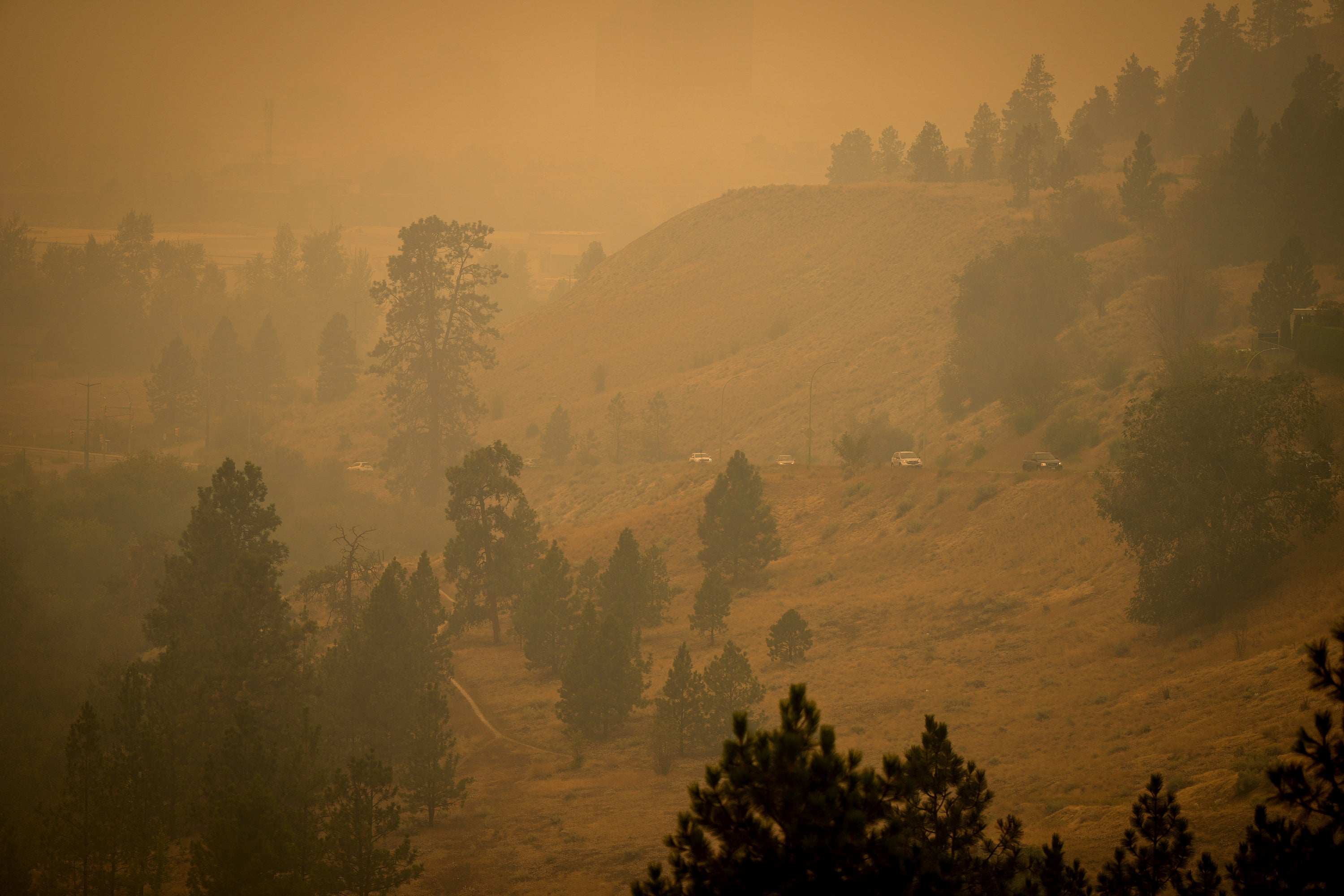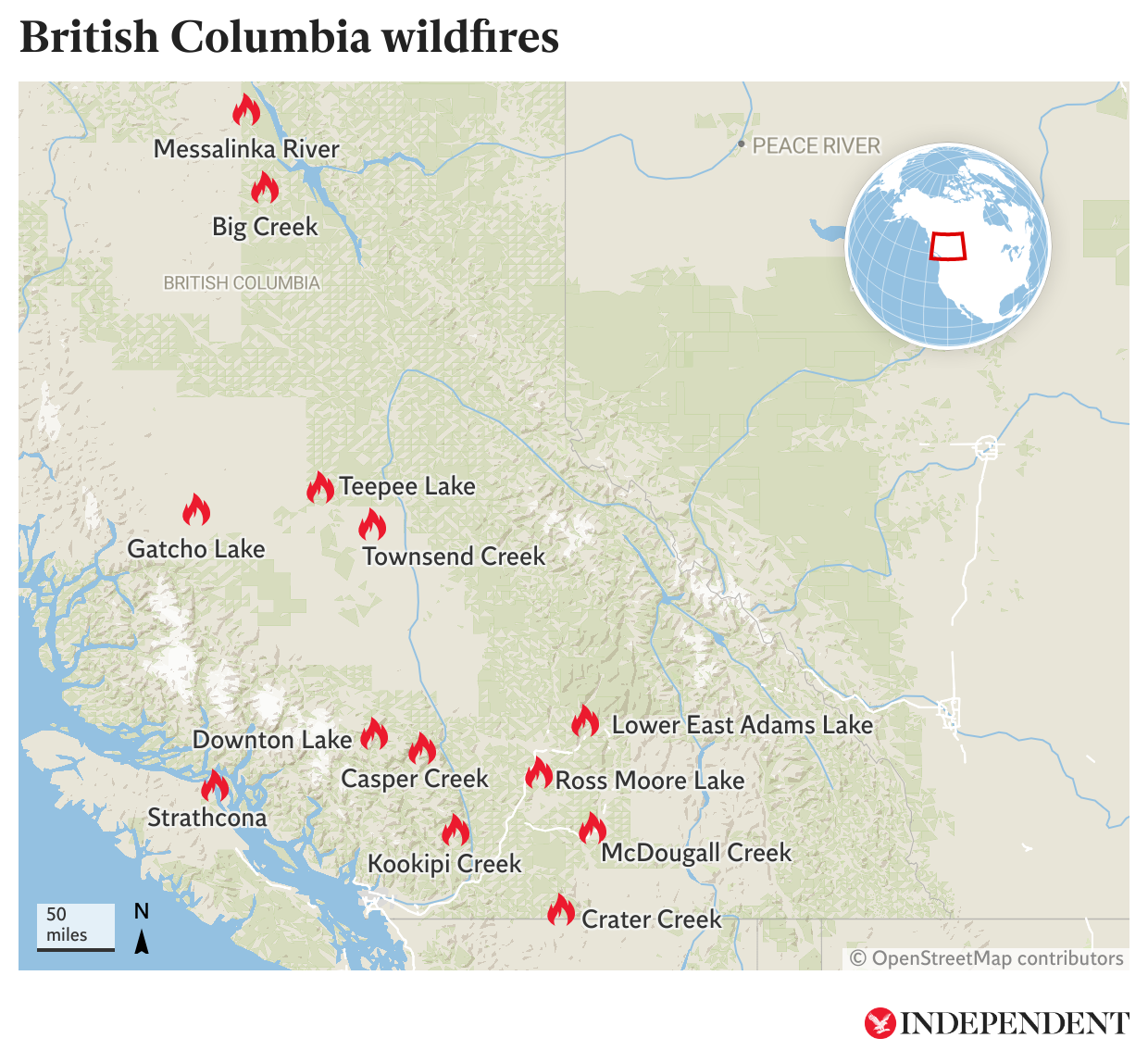Two large wildfires merge to form one huge blaze in Canada as thousands more evacuated
35,000 people ordered to evacuate over the weekend with hundreds of wildfires continuing to burn

Your support helps us to tell the story
From reproductive rights to climate change to Big Tech, The Independent is on the ground when the story is developing. Whether it's investigating the financials of Elon Musk's pro-Trump PAC or producing our latest documentary, 'The A Word', which shines a light on the American women fighting for reproductive rights, we know how important it is to parse out the facts from the messaging.
At such a critical moment in US history, we need reporters on the ground. Your donation allows us to keep sending journalists to speak to both sides of the story.
The Independent is trusted by Americans across the entire political spectrum. And unlike many other quality news outlets, we choose not to lock Americans out of our reporting and analysis with paywalls. We believe quality journalism should be available to everyone, paid for by those who can afford it.
Your support makes all the difference.Two large wildfires raging in western Canada have combined to form one huge blaze that destroyed houses and vast swathes of land, and prompted the evacuations of thousands in the area.
British Columbia declared a state of emergency and imposed a ban on non-essential travel to free up accommodations for evacuees and firefighters, as 35,000 people were ordered to evacuate over the weekend with hundreds of wildfires continuing to burn in the state.
Government officials urged residents in evacuation order zones to leave immediately to save their lives and prevent firefighters from dying trying to rescue them.
On Sunday, prime minister Justin Trudeau announced that his government has cleared the request of the provincial government to deploy the military to tackle fast-spreading infernos.
Mr Trudeau said in a tweet that the federal government will offer support from the Canadian military “to help with evacuations, staging” and other logistical tasks, in response to a request from the British Columbia government.
At least 400 fires continue to burn in the province as strong northern winds continued to fan the flames and hundreds of firefighters struggled to control them for weeks.
In some cities in British Columbia, smoke from the wildfires plunged the air quality index (AQI) to “hazardous” levels, showed IQAir, a real-time air-quality information platform.
At midnight (0400 GMT), Salmon Arm was recording the nation’s worst air quality index, with an AQI reading of 470. Among other cities, Kelowna College and Sicamous both had the AQI at 423.
West Kelowna fire chief Jason Brolund said he saw some hope after battling “epic” fires for the past four days as he said conditions have improved, helping firefighters to put “boots on the ground” and dump water on flames that threatened the town of 150,000.
“We are finally feeling like we are moving forward rather than moving backwards, and that’s a great feeling,” Mr Brolund told the Canadian Broadcasting Corp.

The Pacific coast province could get some rains this week from the moisture of tropical Storm Hilary, which made its historic arrival in California on Sunday, bringing some relief to the province which is in the grip of a severe drought.
Forest fires are not uncommon in Canada but this year, the country has seen its worst wildfire season on record, on the heels of record-shattering global temperatures driven by the climate crisis.
About 140,000 square km (54,054 square miles) of land, roughly the size of New York state, has been scorched nationwide, with smoky haze extending as far as the US East Coast.
Government officials project the fire season could stretch into autumn because of widespread drought-like conditions.
Additional reporting by agencies



Join our commenting forum
Join thought-provoking conversations, follow other Independent readers and see their replies
Comments